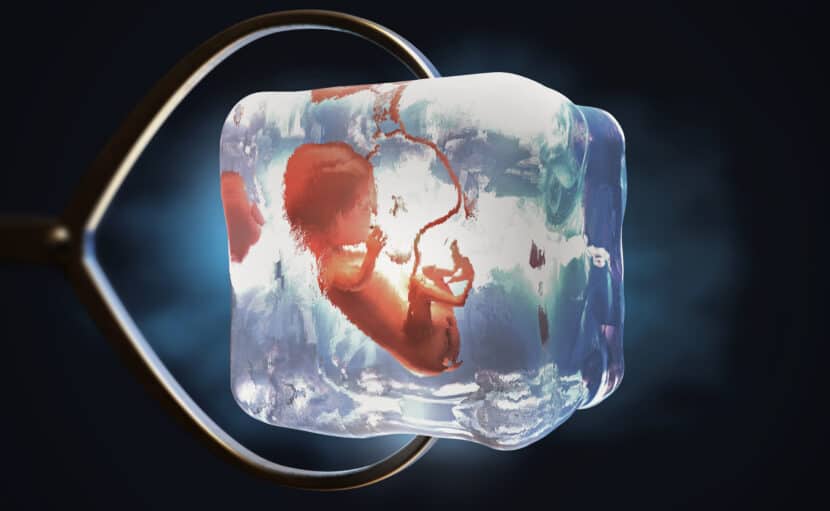Egg freezing or cryopreservation has gained much prominence among women who face age-related infertility. Some reasons for women having a child later in life or having advanced maternal age infertility are career advancement, higher education and difficulties in getting a right partner. A woman’s reproductive years are at peak when she is in the late teens and 20s. The fertility declines at age 30, and when she is in 30s or reaches 40, her chances of conceiving become difficult.
The women who consider cryopreservation want to preserve their healthy eggs to extend their childbearing years. The increase in the number of women of different ages freezing their eggs has attained much attention recently, but it has also given rise to several fallacies. Here are the,
Top Seven Myths Of Cryopreservation
Myth 1: Egg Cryopreservation Is Fairly New, as Well as Experimental
Those who did cryopreservation prior to 2013 had to do so on an experimental basis because the egg-freezing process was fairly new, and there was not enough research conducted or data available. The egg freezing involves processes such as ovulation induction, egg retrieval and cryopreservation, and studies show these processes have been used for decades.
With the American Society for Reproductive Medicine (ASRM) revealing through a statement that there is sufficient evidence to prove that cryopreservation is effective and safe, the idea of it being experimental was dropped. The introduction of vitrification technique improved the pregnancy rates of frozen eggs, which was found to be equivalent to that from ‘fresh eggs’.
Myth 2: Egg Freezing Can Cause Potential Harm to Both the Mother and Baby
Several studies have been conducted to prove whether cryopreservation is safe or not. The good news is there is hardly any evidence of either ovarian stimulation or egg freezing causing any danger to the mother or her prospective baby. Furthermore, there are no studies that show the risk of chromosomal anomalies, birth defects, or pregnancy complications in using frozen eggs. It also reveals that the ovarian stimulation does not contribute to any risk of cancer. The side effects are also considered uncommon, though less than 10 percent of women have reported side effects such as mild headaches, breast tenderness, insomnia, mood swings, bloating, etc.
Also, Read: Who are the Right Candidates for Egg Freezing
Myth 3: It Is Invasive, Painful and Time-Consuming
The oocyte cryopreservation procedure starts with ovary stimulations, which is performed by injecting hormones for 8-11 days, either once or twice a day. For this, thin needles are used to inject hormones into the fatty tissue, and some women administer the injections themselves for they are not painful. They are required to make a few visits to the hospital for the doctor to monitor any changes. The time when the eggs are retrieved is also a painless process performed within 15 minutes. The oocyte cryopreservation process takes about two weeks, which is considered to be a reasonable one.
Myth 4: Undergoing Oocyte Cryopreservation Could Affect Your Fertility in Future
The egg retrieval process is taking eggs from the ovaries using a suction device. This has caused one to believe that removing eggs will reduce the number of eggs produced and cause infertility in future. However, women ovulate every month, where a matured egg among multiple eggs is released by an ovary. It is estimated that a woman may lose hundreds of eggs by the time she is in 20s. In the oocyte cryopreservation procedure, multiple eggs are allowed to develop and mature and in these, one is transferred, while the rest are preserved to use later.
Myth 5: Frozen Eggs Are Less Effective Than the ‘Fresh’ Eggs When Used Later
Research has showed that the eggs frozen and preserved at age 30 if thawed and used for fertilization when you are older has in fact higher chances for healthy pregnancy than the “fresh eggs” fertilized when you are in 40s. Age has an influence on the fertility of both men and women. The older you are, the less fertile you will be. Statistics shows that live birth rates for women who use their own eggs at age 35 and older decline by 10 percent every two years. On the contrary, older women using frozen donor eggs have over 50 percent success rates.
Myth 6: Oocyte Cryopreservation Is Not Affordable to All
Oocyte cryopreservation can be expensive and most insurance companies do not offer any coverage for it. However, it should be noted that women who opt for freezing eggs do so for various reasons, and they feel it is not the right time to have a baby. There are also steps taken to offer the oocyte cryopreservation in payments made through easy monthly instalments.
Myth 7: Freezing Eggs Is Done Only by Women With Higher Growth in Career
There are several reasons for freezing eggs and the most common one is the medical egg freezing, which is usually opted by women suffering from cancer or any other serious disease. The other is the social egg freezing, which is opted by women for lifestyle reasons.
Also, Read: Difference between Egg and Embryo Freezing
